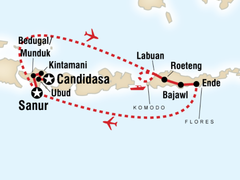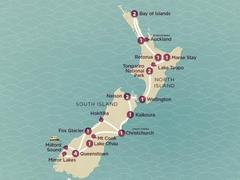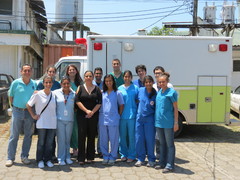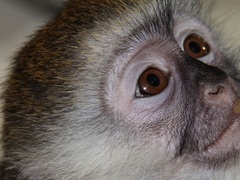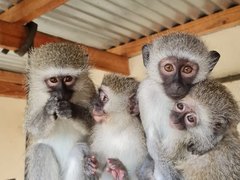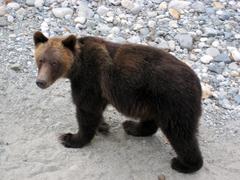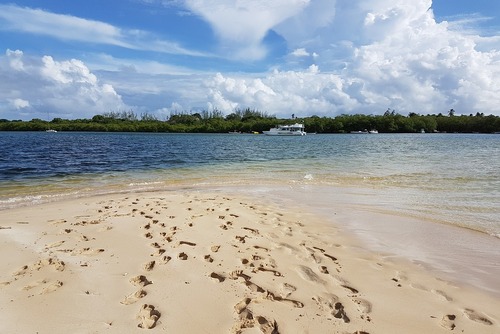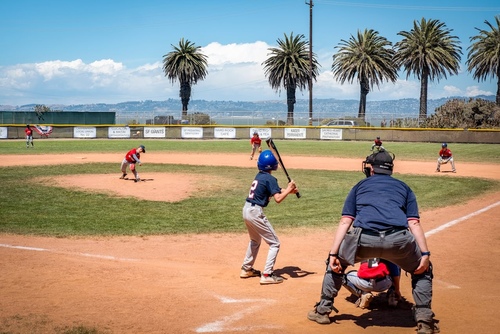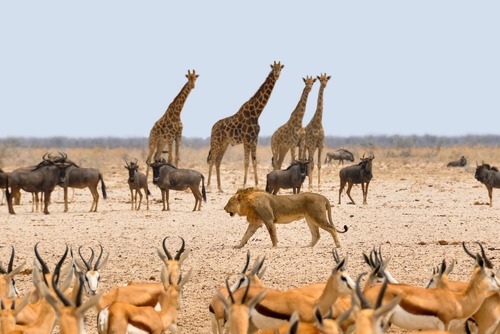Our activities began in a small way in 1990 when the local paper reported that hundreds of young spectacled flying-foxes had been orphaned by tick paralysis. The adventure began with 2 orphans but over the next 10 years morphed into a life’s passion for our founder.
We originally worked with bats from the Tolga Scrub and hence our name. This became confusing when we opened the visitor centre in 2009 as we are not at Tolga, and so we called it The Bat Hospital Visitor Centre. We now work with all bats, megabat or microbat, from this region and afar. Bats come to us from remote rural areas many hundreds of kilometres away, and occasionally for sanctuary when retired from zoos.
We followed in the footsteps of Friends of Far North Flying Foxes. This group was very active in the 1990s, working mainly centred around the colonies at Zillie Falls and Whiteing Road on the southern Tablelands. In 2002 they folded and voted to transfer their funds to Tolga Bat Rescue and Research Inc. Ann and Bruce Johnson, the mainstay committee members, left a legacy of very informative newsletters.
Over the years our work has become more holistic and wide-ranging. In 2004 we became endorsed as a Landcare group, in recognition of our habitat restoration work at the Tolga Scrub and other flying fox camp sites. We subscribe to the Landcare Ethic: “To protect our environment and way of life now and for future generations, we must carefully manage our land, air, water and biodiversity.”
We became incorporated in 2002 as a not-for-profit community group, listed on the Register of Environmental Organisations in 2007, and registered as a charity in 2008. This enables us to accept tax-deductible donations, but also means we have a fair amount of administration and accountability.
We are now facing the challenge of ensuring the sustainability of the group by moving beyond an all-volunteer workforce.
Volunteering
Thank you for taking an interest in volunteering at the Bat Hospital. We are in a very safe part of the world in rural tropical north Queensland, and easily accessed by international flights into Cairns. Two World Heritage areas are at our doorstep – the Great Barrier Reef and Wet Tropics Rainforest – so take some time before or after volunteering to look around. Unfortunately both areas are at risk from climate change, let a couple of animated flying foxes tell you all about climate change!
We need self-motivated people who can learn quickly, genuinely care for the bats and work well in a team. This requires a certain type of person as well as a certain level of maturity. For this reason, persons under the age of 21 are less likely to be accepted as volunteers. We encourage all volunteers to exercise daily, whether it’s a run or just a short walk. This is especially so in the months where a lot of time is spent sitting and feeding the baby bats.
We appreciate volunteers with practical skills or those with a medical, veterinary, IT or environmental education background. However above all we look for those with a positive attitude to life and this volunteering opportunity.
Volunteers are needed all year but especially during tick paralysis season when hundreds of adults and orphans come into care. These are the months from October to February. We usually need 4 to 8 full-time people, as well as our dedicated group of local part-time volunteers.
We prefer a minimum stay of one month in busy season, and two weeks the rest of the year. Experienced flying fox carers can be an exception to this rule. Apply as early as you can to maximise the chances of coming at your preferred time.
Work at the hospital in tick season is varied. Typically volunteers will help prepare large amounts of food for the adults and orphans; feed/clean/weigh/measure the orphans, clean cages, wash large amounts of bat and human laundry, participate in trips to the rainforest to search or release (depending on season); and help with miscellaneous projects around the hospital.
We buy fruit in bulk (apples1000kg and bananas 350kgs) and these need to be unloaded into boxes for storage in fridge or food safe. We make large amounts of banana smoothie on particular days, and this is then stored in the freezer and brought out as required.
Caring for sick or young animals is like caring for sick or young humans, many tasks are very repetitive but your love and respect for the animals will make it very rewarding. Some volunteers also help with visitor tours.




